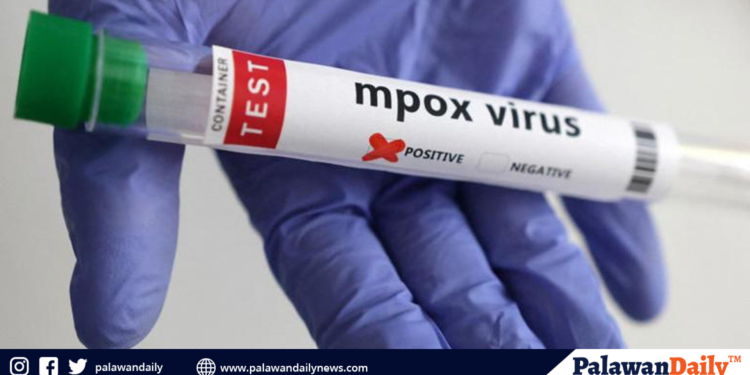Local health authorities have placed three individuals under isolation following the emergence of suspected monkeypox (Mpox) cases in this city, raising concerns about the virus’s possible local transmission.
Dr. Rick Panganiban of the Puerto Princesa City Health Office confirmed that two male patients — a 7-year-old child and a 17-year-old adolescent — along with a 46-year-old woman currently confined in a hospital, are being closely monitored after showing symptoms consistent with Mpox infection.
The patients reportedly presented with fever, muscle aches, headaches, and skin lesions resembling those seen in chickenpox. According to city health officials, these symptoms prompted their classification as suspected Mpox cases.
Samples from the three individuals have been sent to the Research Institute for Tropical Medicine (RITM) for confirmatory testing. Results are expected within one to two weeks.
The announcement comes amid heightened vigilance nationwide, with health agencies maintaining surveillance to prevent the reemergence of the virus, which was declared a public health emergency of international concern by the World Health Organization in 2022.
City health authorities emphasized that while Mpox shares visual similarities with chickenpox, it is caused by a different virus and spreads through close personal contact, respiratory droplets, or contact with contaminated materials such as clothing or linens.
Dr. Panganiban encouraged residents not to panic but to remain informed and practice good hygiene, especially as the city awaits the results of laboratory tests. He added that contact tracing has already begun for individuals who may have interacted closely with the suspected patients.
The Department of Health has yet to confirm whether the suspected cases in Puerto Princesa are linked to any other Mpox alerts elsewhere in the country.
Mpox is a viral illness caused by the monkeypox virus, a member of the Orthopoxvirus genus, which also includes the now-eradicated smallpox virus. First identified in humans in 1970 in the Democratic Republic of Congo, Mpox was long considered a rare and self-limiting disease, mostly affecting people in parts of Central and West Africa. However, in 2022, a major global outbreak surprised scientists and public health authorities alike when the virus began spreading rapidly in countries with no previous history of cases.
Unlike its historical pattern, recent Mpox outbreaks have demonstrated human-to-human transmission primarily through close physical contact, including contact with infected skin lesions, bodily fluids, or contaminated materials such as clothing and bedding. It may also spread through respiratory droplets in prolonged face-to-face exposure.
Although the disease is generally less severe than smallpox, it can be more dangerous for children, pregnant women, and individuals with compromised immune systems. While most cases recover within two to four weeks, some may require hospitalization to manage complications.
For now, Puerto Princesa remains free of any confirmed Mpox case, but city officials say they are prepared to escalate their response should the situation change.





















